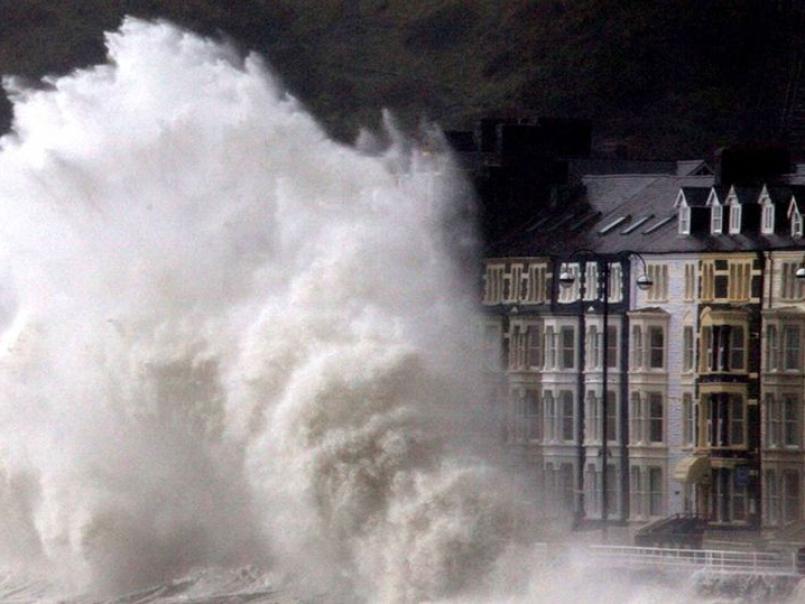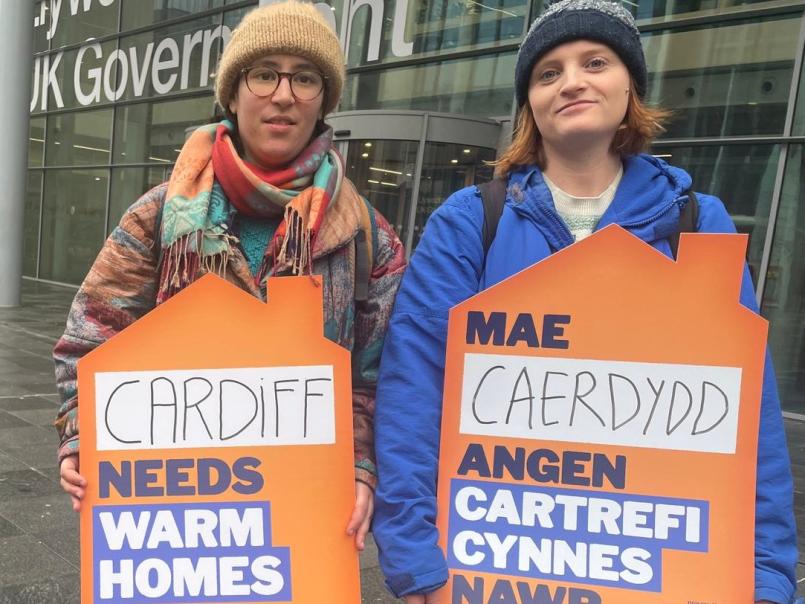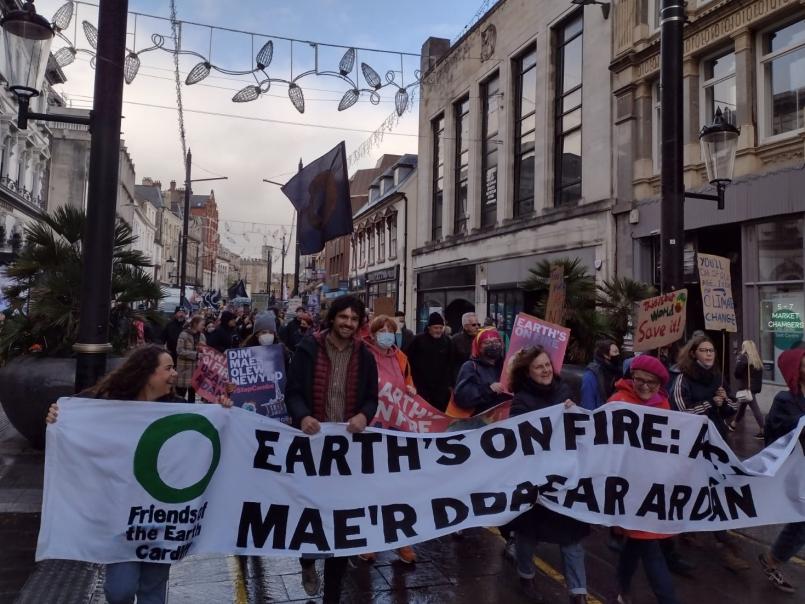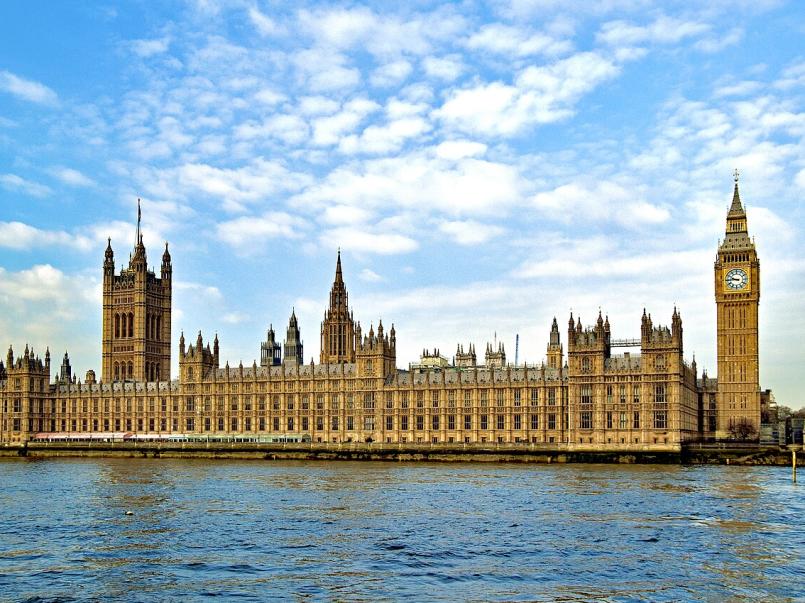A comprehensive, ambitious and fair climate plan
Published: 19 Sep 2024

Although many areas for delivering on the UK climate plan are devolved to the Welsh Government and Senedd in Wales, and Wales has its own climate legislation and plan, further support, funding and action is needed on a UK level in order to deliver on the ambition needed.
MPs have a role in influencing the wider picture which impacts climate justice in Wales, therefore the UK asks are included here in full, with those which are primarily devolved in italics.
In 2008, the UK Labour government passed the Climate Change Act. This responded to the urgent demands for action from scientists and followed a multi-year NGO campaign, led by Friends of the Earth. This was the world’s first law setting legally binding targets for cutting climate emissions. Since then, Friends of the Earth has closely monitored the implementation of the act. This has included two successful legal challenges in the last three years to the climate plans of the last government, which were declared unlawful by the courts.
The most recent court victory means that the new UK government is legally obliged to write a new climate plan in 2025 i. And we need a new plan because we are dangerously off track to meet our climate targets, notably our international commitment to reduce emissions by over two-thirds by 2030 where, according to the Climate Change Committee (the government’s official advisors) ‘urgent action is needed’ ii.
The new plan must be comprehensive, ambitious and fair. It must make sure we meet all our climate commitments, and it must put fairness at the heart of climate action, ensuring that the benefits of transition needed are felt by everyone, with no-one being left behind.
This briefing sets out how Friends of the Earth believe this should be delivered. We have five key demands, with policies that we believe should be introduced in each area.
The five key demands are:
- Keep the government’s promises to cut carbon emissions with policies that add up, developed with expert input and in-depth public engagement.
- Invest in the future by fairly financing local, devolved nation, UK and international climate action.
- Ensure everyone can live in a warm home powered by cheap, clean energy.
- Deliver affordable, reliable public transport and clean air
- Help people find well-paid green jobs by providing investment and training, especially for sectors and places most at risk of being left behind.
1 Keep the government’s promises to cut carbon emissions with policies that add up, developed with expert input and in-depth public engagement
The Climate Change Committee (the government’s official advisors) have said that there are only credible plans in place to achieve a third of the emissions cuts needed to meet the government’s 2030 climate commitment iii.
The new plan should include:
-
Credible policies, as assessed by the Climate Change Committee, that fully deliver the 2030 commitment, the 2035 international commitment which the government must set by early 2025, and carbon budgets.
-
Robust contingency plans to be used if policies set out do not deliver as expected – the previous plan made the unrealistic assumption, criticised by the courts, that all policies would achieve 100% of their intended emissions cuts iv.
-
The views of experts and the public, with input from the Climate Change Committee, Parliament, civil society and a permanent climate citizens panel, as recommended by the Climate Citizens Research Group v.
-
An equality impact assessment and economic analysis of the plan to ensure the costs and benefits are shared fairly. It isn’t fair that the poorest in society, who have contributed the least to the problem, could lose out.
-
A commitment to publish a public engagement strategy to set out why we need to act, to involve people in developing policies that affect them, and to give them the information and support they need to make changes.
2 Invest in the future by fairly financing local, devolved nation, UK and international climate action
Climate action is essential investment in the UK’s future, supporting the government’s missions around clean energy, creating growth and improving opportunity. To help finance this, we need to make rich polluters pay. The wealthy have contributed disproportionately to the climate crisis with the richest 1% of humanity emitting more than the bottom 66% vi.
Measures in the new plan should include:
-
Mobilising at least £50 billion a year in public and private finance for climate action, as recommended by the Climate Change Committee vii. This is about 2% of GDP, and a similar amount to pledges made for defence spending.
-
Ensuring that devolved nations are fully involved in the development of the plan, and that their policies are fully captured within it.
-
Giving all local and combined authorities a statutory duty to help hit the UK’s climate targets backed up by local money-raising powers and more long-term, stable funding from central government viii.
-
Raising funds for climate investment by making rich polluters pay. This could be done through taxing carbon-intensive luxury consumption, such as private jets, and taxing income from shares in polluting companies (ix - This could be done through the introduction of a carbon capital gains tax, a carbon investment tax, or extending the windfall profit taxes to other sectors beyond fossil fuel producers.) .
-
Delivering the UK’s commitment to pay £11.6 billion in climate finance to poorer countries, in addition to overseas aid.
3 Ensure everyone can live in a warm home powered by cheap, clean energy
Millions of people will continue to struggle to pay their bills this winter because years of government inaction has left homes damp, cold and expensive to heat. A report for Friends of the Earth by Sir Michael Marmot’s Institute for Health Equity found that cold homes cost the country tens of billions of pounds a year in lost productivity and NHS costs and increase the risk of children and adults developing mental health problems x. Tackling this crisis by improving insulation and moving to homes heated by electricity rather than gas will cut emissions and put money back in people’s pockets.
Measures in the new plan should include:
-
Kickstarting a nationwide insulation programme to insulate at least 7.5 million of our heat-leaking homes.
-
Ensuring energy is affordable, by introducing a social tariff for low-income families and by rolling out cheap renewables (such as onshore wind and solar farms) fast so that current annual build rate is increased at least threefold, and ensuring they have grid connections xi.
-
Extend the provision of heat pumps at no cost to lower-income households and offer interest-free loans to cover costs above government grants to other households, as recommended by the National Infrastructure Commission xii.
-
Reducing the cost of electricity by removing the policy costs currently applied to electricity bills.
4 Deliver affordable, reliable public transport and clean air
Although the growth in sales of electric cars is very welcome, this alone will not deliver the emissions cuts needed from transport. We must also greatly improve public transport – particularly buses (since 2008, urban bus service levels have fallen by 48% and rural bus service levels by 52% xiii) and encourage more cycling and walking. This will also help those who cannot afford a car, particularly an electric car.
Measures in the new plan should include:
-
Setting a demand reduction target to cut vehicle miles by 25% by 2030, using more affordable public transport and better cycling and walking facilities to achieve this.
-
Committing to more than double bus passenger kilometres and increase rail passenger kilometres by 80% by 2030 xiv.
-
Increasing expenditure on active travel to £2 billion a year to make it safe and easy for people to cycle and walk for short journeys xv.
5 Help people find well-paid green jobs by providing investment and training, especially for sectors and places most at risk of being left behind.
We need a strong industrial strategy to ensure the development of the technologies of the future, as well as embracing the potential in sectors such as services, farming and land management. Moving to a greener economy will inevitably mean the decline of some sectors (such as oil and gas extraction) and changes to others (such as steel making). Workers in these sectors must be involved in shaping the transition to ensure it is fair, and areas currently reliant on fossil fuel industries for employment must be put at the forefront of the transition.
Measures in the new plan should include:
-
Investing a minimum of £4 billion a year in skills development, retraining and jobs creation including in areas most in need of just transition investment.
-
Requiring growth industries such as renewables, heat pumps, electric vehicles and timber to grow UK supply chains and guarantee good quality, secure UK jobs.
-
Committing to a comprehensive climate skills plan, following the lead of Scotland & Wales, as recommended by the Climate Change Committee xvi.





